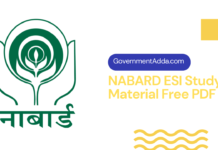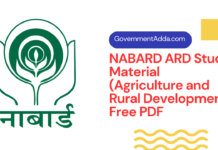 For Daily Job Alert For Daily Job Alert |
Join Our Whats App Channel |
 For Free Study Material For Free Study Material |
Join Our Telegram Channel |
A fertilizer or fertiliser is any material of natural or synthetic origin (other than liming materials) that is applied to soils or to plant tissues to supply one or more plant nutrients essential to the growth of plants.
Fertilizers enhance the growth of plants. This goal is met in two ways, the traditional one being additives that provide nutrients. The second mode by which some fertilizers act is to enhance the effectiveness of the soil by modifying its water retention and aeration. This article, like many on fertilizers, emphasises the nutritional aspect. Fertilizers typically provide, in varying proportions
- Three main macronutrients:
- Nitrogen (N): leaf growth
- Phosphorus (P): Development of roots, flowers, seeds, fruit;
- Potassium (K): Strong stem growth, movement of water in plants, promotion of flowering and fruiting;
- Three secondary macronutrients: calcium (Ca), magnesium (Mg), and sulfur (S);
- Micronutrients: copper (Cu), iron (Fe), manganese (Mn), molybdenum (Mo), zinc (Zn), boron (B). Of occasional significance are silicon (Si), cobalt (Co), and vanadium (V).
Advantages of applying fertilisers to the land:
- It increases crop yield and improves poor quality land.
- Manure improves soil texture, recycles nitrogen and introduces essential bacteria.
- Pasture is improved so animals fatten up quicker.
- Once marshland is drained, fertilisers can help reclaim that land for pasture
- Crops grow faster – particularly when hybrid seeds are used.
Disadvantages of using fertilisers:
- Crops grow better, but so do weeds. Therefore herbicide sprays are required too.
- Better quality plants attract insects so pesticides may be needed.
- Excess nitrogen from fertilisers gets into water supplies, causing fish to die.
- Chemicals need to be used safely. In poorer countries in particular, farmers can
damage their health by applying fertilisers, pesticides and herbicides incorrectly. - Artificial fertilisers, applied without organic additions, do not improve soil structure.
| NABARD Grade A Assistant Manager 2018 Important Links | ||
| 1. | NABARD Assistant Manager Grade A 2018 Recruitment Notification Apply Online | Click Here |
| 2. | NABARD Grade A Officers Exam Syllabus 2018 – Prelims/Mains | Click Here |
| 3. | NABARD Grade A Officers Exam Pattern 2018 – Prelims/Mains | Click Here |
| 4. | NABARD Grade A Assistant Manager Previous Year Question Papers PDF – Download Here | Click Here |
| 5. | NABARD Grade A Previous Year Cut Off Marks | 2017, 2016, 2015 Cut Off Marks | Click Here |
| 6. | NABARD Grade A Assistant Manager Study Material | Books | ESI | ARD | English | GK Pdfs | Click Here |
| 7. | NABARD Grade A Assistant Manager ARD Agriculture and Rural Development PDF | Notes | Books | Click Here |
| 8.
9. 10. |
NABARD Grade A Assistant Manager Study Plan | How To Prepare For NABARD Grade A Officer Exam
NABARD ARD Study Plan & Preparation Tips and Tricks for Agriculture and Rural Development (ARD) NABARD ESI Study Plan & Preparation Tips and Tricks for Economic & Social Issues(ESI) |
Click Here |










